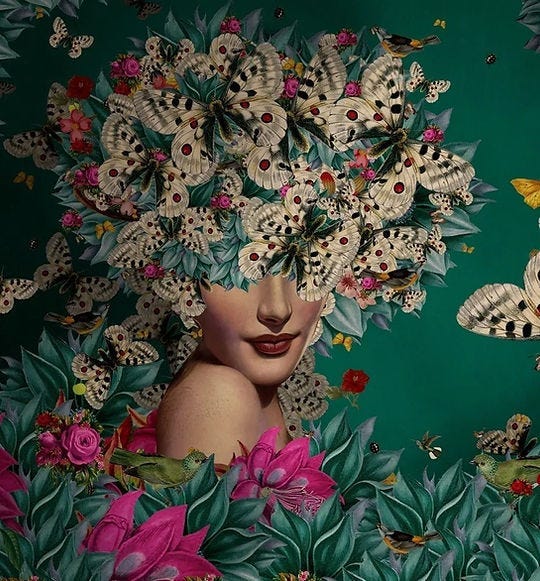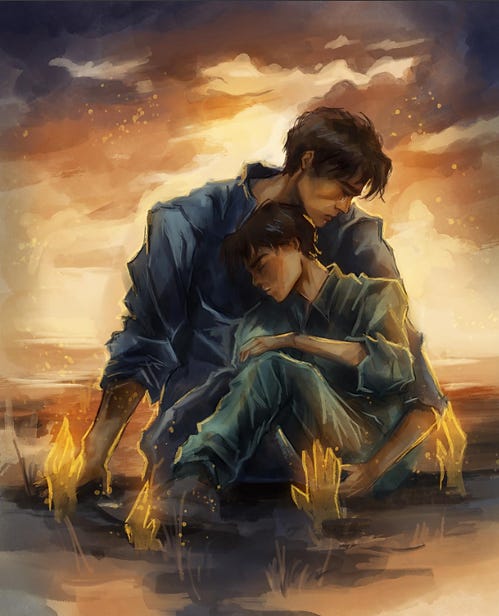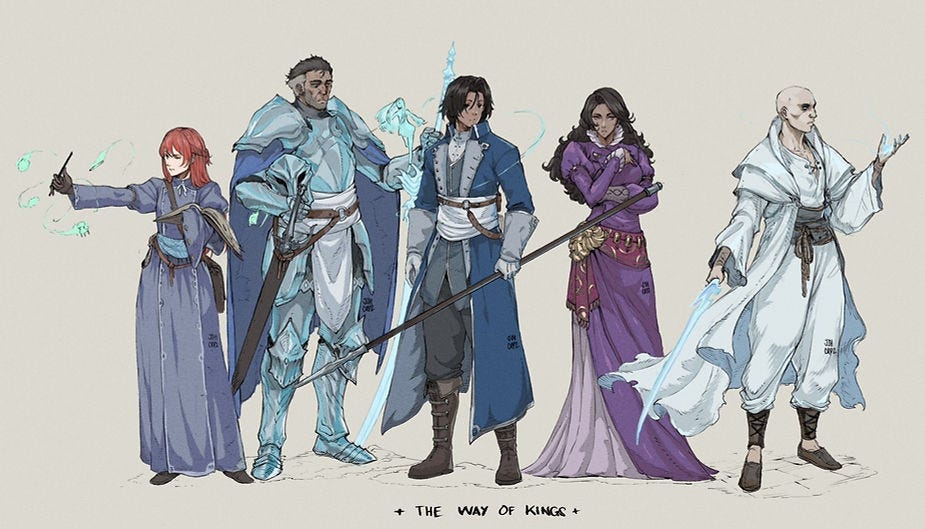How ADHD Corrupts the Purpose of Guilt
Recognizing helpful vs. unhelpful guilt, with references to The Stormlight Archive and other books
ADHD & Guilt
In the process of getting my ADHD diagnosis back in 2021, I was surprised and relieved to learn about the strong association between the condition and guilt. People with ADHD can be highly sensitive to emotions, which can often exacerbate the effects of guilt and shame experienced when we (unknowingly) fail or differ from the norm due to our executive dysfunction. (see hyperlinks for sources!)
I’ve written previously about one such source of guilt for me: the detritus of fleeting hobbies and interests around my home that I feel guilty for abandoning — doubly so when it was a gift, with attached expectations of my enjoying it.
Without insights from diagnosis and education, it’s all too easy for these feelings to grow and weigh us down like a tumour. But as with so many oppressive thoughts, knowledge and mindfulness can sometimes pop the guilt like a balloon: a bit of introspection will show that there’s rarely anything of substance to actually feel guilty about. If anything, we can instead feel relieved to explain these painful memories as stemming from executive dysfunction and move on with our lives.
Because ultimately, the “adaptive” purpose of guilt is simply to improve our future behaviour by encouraging us to repair social bonds, learn from our mistakes and generally behave with greater empathy and morality. In contrast, “maladaptive” guilt is either disconnected from our actions (“free-floating”) or a greatly exaggerated response to our actions (“contextual”).
In my experience, ADHD leans heavily toward supplying maladaptive guilt. After all, our failures due to executive dysfunction are rarely cases of questionable morality or apathy: we’re often on the right path, and our brains simply failed us. Our journey to learning about and working with out ADHD is the best solution we have in the here and now.

Kal & Dal & Shal
Now this is a post about mental health, so you know I’m contractually obligated to bring up The Stormlight Archive. Specifically I want to contrast the ways guilt manifests in the lives and perspectives of each main character (Kaladin, Dalinar, Shallan and Szeth) to illustrate the comparisons that helped me wrap my mind around the different types of guilt.
As I wrote about recently, Kaladin is a beacon of morality. (He’s Kaladin the Paladin after all.) That’s not to say his actions are entirely unimpeachable, but even his gravest errors are only the result of his sense of justice and morality breaking through at inopportune moments. Nonetheless, Kaladin is riddled with survivor’s guilt and feels personally responsible for every death of those close to him. This is textbook maladaptive guilt (contextual, though his ongoing depression feels related to free-floating), weighing him down despite his best intentions and which he makes the greatest progress toward overcoming when swearing his Fourth Ideal: “I accept that there will be those I cannot protect.”

I’ve also written about Dalinar’s journey with guilt! To briefly recap, in his youth Dalinar was an alcoholic warlord responsible for grievous war crimes and the deaths of thousands. (He was being pushed by an evil god, but the books make it clear that he was responsible for his actions.) He’s a stark contrast to Kaladin in that every ounce of his guilt is obviously adaptive and purposeful: he wrought tremendous wrongs and now spends the books repenting by word and deed. At the climax of his arc in Oathbringer (and among many great quotes) he says: “The most important words a man can say are, ‘I will do better.’”
For all I’ve written about Stormlight, Shallan and Szeth have been criminally underrepresented. Both certainly have a lot to be guilty for, but each has sidelined the emotion in their own way: Shallan (who has Dissociative identity disorder) by compartmentalizing it away along with her memories and Szeth by separating himself from responsibility through zealous commitment to different ideas and causes (I touched on him a little here).
Shallan was too young to have responsibility for her actions — ‘killing’ her mother and Testament — and even then only acted out of self-preservation. Szeth has spent his life unquestioningly serving different masters, out of a joint desire to be spared of responsibility for his actions and to believe in a force of cosmic order and justice. He also certainly has some underlying issues — perhaps related to executive dysfunction, given how he relies on others to make decisions for him — but ultimately conducted great evil willingly. And was utterly haunted by it.

Navarez & Senlin
What inspired me to write this post was actually listening to To Sleep in a Sea of Stars by Christopher Paolini. (Very light spoilers for it as I’m barely a third through this near-Stormlight length tome myself.) Point-of-view character Kira Navarez is also grappling with a form of survivor’s guilt, coupled with the Shallan-like fear that she was personally responsible for bringing on doom. It seems like she’s made peace with it so far, but I’m interested to see how it develops!
The other book I was reading this week, Senlin Ascends, provides an interesting contrast. Thomas Senlin’s optimism and imagined worldliness are clearly responsible for his and Marya’s predicament — separated by the chaotic sea of humanity at the Tower — but their experiences of guilt are utterly matter-of-fact. Neither of them wallow in self-deprecation for past mistakes: Senlin thinks only of the future, while Marya displays a little sense and attends to the present first.
Of course part of the reason Senlin isn’t guilty is that he has yet to be entirely rid of his delusions, but the Tower provides that education in good order. Still, the couple’s ability to (independently) focus and plan without giving thought to guilt is a little aspirational to me after spending so long in my own maladaptive brain.
Anyway! Focus on the things you can change, accept the things you can’t. “I will do better.”
Thanks for reading and until next time ❤



I’ve never read stormlight archive but after reading this I feel like I have to! As someone navigating ADHD diagnosis the concept of maladaptive guilt is super interesting.